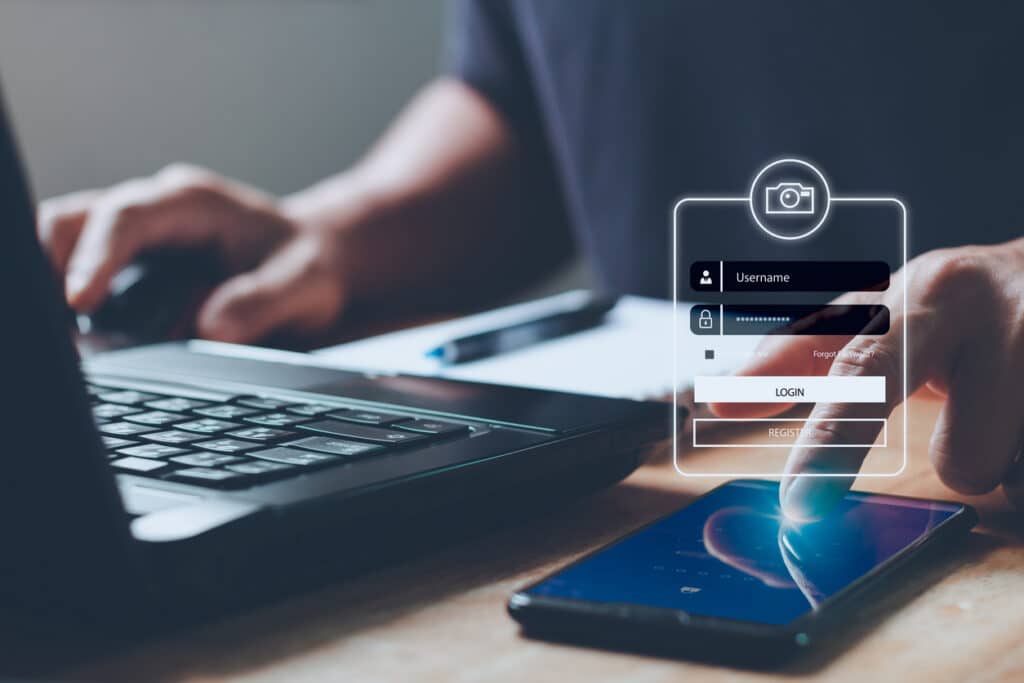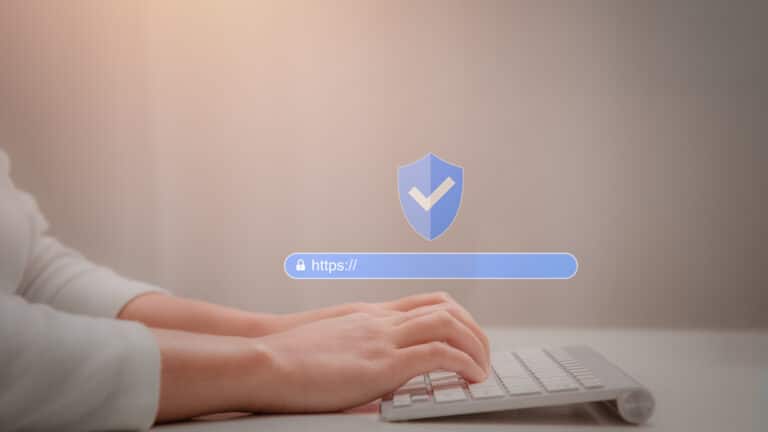WordPress is a popular content management system (CMS) that is used by millions of people around the world, including many high-profile organizations.
It is an open-source platform that is available for free, but because it is so popular, it also makes it a target for hackers. In fact, Sucuri, a security plugin, reported 90% of its cleanup requests in 2018 were from WordPress.
To ensure that your WordPress website is secure, there are some important steps you should take. In this blog, we will highlight 11 ways to keep your WordPress website secure. Let’s go!
What is WordPress?
As mentioned above, WordPress is a content management system (CMS) that allows users to create and manage websites without having any coding knowledge.
It is an open-source platform, meaning that anyone can download the software for free and customize it according to their own needs. WordPress is backed by a dedicated community of developers and users who are constantly updating and improving the software.
A WordPress site is a powerful tool to help you create, manage and update content online. But like any other online platform, security should always be a priority.
If you are interested in learning more about WordPress and if it’s right for you, we suggest checking out our other blog why you should use WordPress.
Is WordPress Secure?
WordPress is generally secure and is actively maintained by its developers and users. However, it’s important to remember that no software is completely immune from security vulnerabilities.
Let’s take a look at the different facets of WordPress and whether they are or are not secure.
Is WordPress core secure?
The core of WordPress is the software itself. The core code is actively maintained by WordPress developers and released periodically with security updates.
It’s important to keep your website up-to-date with the latest version of WordPress, as this will help ensure that your website is secure from any known vulnerabilities.
Are WordPress plugins secure?
While most WordPress plugins are generally secure, there are some that can pose a security risk if they’re not properly maintained or developed correctly.
It’s important to always use plugins from reputable sources and keep them updated regularly. We suggest only downloading plugins from wordpress.org or other trusted sources like CodeCanyon.
Are WordPress themes secure?
Just like plugins, WordPress themes can also pose a security risk if they’re not properly maintained or developed correctly. It’s important to always use themes from reputable sources and keep them updated regularly. We suggest only downloading themes from wordpress.org or other trusted sources like ThemeForest.
5 common WordPress Security issues
Some of the most common security issues with WordPress sites include:
1. Brute force attacks
Brute force attacks are when hackers use automated software to guess passwords and gain access to your site on your login page. In website security, it’s always important to have strong and unique passwords.
2. SQL injections
This kind of attack on WordPress sites is when a hacker injects malicious code into your database in order to steal information or wreak havoc on your WordPress site.
3. XSS attacks
Like a SQL injection, a XSS attack on WordPress websites is when a hacker injects malicious code into your website in order to steal sensitive data or otherwise compromise the security of your site.
4. Backdoors
To secure your WordPress site, you need to be aware of “Backdoors” which refer to when a hacker has installed malicious software on your site without your knowledge. Backdoors are usually hidden in files or plugins and can be used to gain access to your site.
5. Phishing
This is when a hacker sends you an email or message with a link that looks legitimate but actually leads to a malicious website.
In the next section of this blog, we’ll discuss some tips on how to secure WordPress. Let’s go!
11 Ways to Secure your WordPress Website
Now that we’ve discussed some of the common security issues, let’s go over 11 simple steps you can take to protect your WordPress website:
1. Keep your WordPress core up to date
The first thing you can do to keep your WordPress security strong is to make sure the core is up to date. This means updating WordPress regularly with the latest security patches and features.
To do this, you can use the built-in update feature in WordPress or you can manually download and install the latest version of WordPress.
Making sure your WordPress site is up to date is one of the simplest and most effective ways to secure it.
2. Use strong passwords and two-factor authentication
Another key step to take is to make sure all of your passwords are strong. How do you make sure your login credentials are secure? Try using a password manager and two-factor authentication on your login page.
A password manager will help you create strong passwords that are difficult to guess, and two-factor authentication will add an extra layer of security by requiring a second credential (such as an SMS message) before allowing access to your account.
This can help protect against brute force attacks as it makes it more difficult for hackers to gain access from your login page.

3. Install security plugins
There are a number of WordPress security plugins available that can help to protect your website from potential threats.
These WordPress plugins can scan your site for vulnerabilities, block malicious traffic, and alert you when suspicious activity is detected. They also offer additional features such as two-factor authentication and backup capabilities which further enhance the security of your website.
You can find a security plugin by searching the WordPress Plugin Directory or by doing a quick Google search.
Once you have installed the plugin, make sure to read the documentation and configure it correctly in order to get the most out of your security plugin.
4. Routinely back up your site
Backing up your WordPress website is an essential part of keeping it secure. Having a backup means that if your site ever gets hacked or compromised, you can quickly restore it to its previous state.
You can use backup plugins to automate the process and make sure your backups are stored securely in the cloud. Once again, you can find this form of website security by searching the WordPress Plugin Directory or by searching Google.
You can also manually create backups by exporting your database or downloading a copy of all your files. Though, this method is more time-consuming and not as reliable.
5. Update themes and plugins regularly
Just like with WordPress core, it’s important to keep themes and plugins up to date. Doing so will ensure they are running the latest security patches, which can help prevent malicious attacks.
You can use the built-in update feature in WordPress or manually download and install the latest versions of each plugin or theme. A built-in update feature is a function that is already available on WordPress. It can be used to automatically update WordPress with the latest security patches and features.
To do this, you can navigate to Settings > Updates and click on the “Update Now” button. This will check for available updates and install them automatically. You can also receive updates by subscribing to the WordPress blog or following WordPress on Twitter.
You can also manually download and install the latest version of WordPress by going to wordpress.org/download/.
How often you update depends on the frequency with which updates are released by the developers. Try to keep an eye on the plugins and themes you use as well as WordPress itself, so you can update them at regular intervals.
6. Disable file editing in the WordPress admin area
By default, WordPress allows you to edit theme and plugin files from the WordPress dashboard.
This can be a problem if a hacker gains access to your admin area as they will then have full control over the files on your website. To prevent this, you should disable file editing in WordPress by adding the following line of code to your wp-config.php file:
define(‘DISALLOW_FILE_EDIT’, true);
Doing so will prevent anyone from editing files through the WordPress dashboard, which will make it more difficult for a hacker to gain access and manipulate your website’s code.
7. Disable PHP execution in certain directories
Another security measure you can take is to disable PHP execution in certain directories. This means that if someone manages to gain access to a directory, they won’t be able to run any malicious code on your website.
To do this, you can add the following line of code to your .htaccess file:
<Files *.php>
deny from all
</Files>
This will prevent anyone from accessing PHP files in the directory. You may also need to adjust some WordPress settings if applicable.
8. Limit login attempts
Limiting login attempts is an effective way of preventing brute-force attacks.
You can use a plugin such as Login LockDown to limit the number of times a user can try to log in with an incorrect username or password before they are locked out. This will make it much harder for someone to gain access through repeated guessing of your login credentials.
9. Enable SSL
One of the best security measures you can take for your website is to enable SSL/TLS encryption. This will ensure that any communications between a visitor’s browser and your website are securely encrypted.
An SSL encryption is essential if you manage any sensitive data on your website such as credit card information, passwords, and personal details.
You can get an SSL certificate for free from providers such as Let’s Encrypt or by purchasing one from a trusted vendor. Once you have it, you will need to install it on your server and enable it in WordPress. It is also better to go with a paid service provider as they offer many features along with timely renewal. Such SSL providers including CAs offer great discounts on a single domain, Wildcard SSL, and other types of SSL certificates.
10. Install a firewall
A web application firewall is an essential security measure for any website. It will monitor incoming and outgoing traffic to your website and block any malicious requests that it detects.
You can use a WordPress security plugin such as Sucuri or Wordfence to help protect your WordPress site from malicious attacks. Both plugins come with advanced features such as malware scanning, login security, and more.
11. Monitor your site for security issues
Finally, it’s important to monitor your WordPress site for any security issues or malicious activity.
You can use a WordPress security plugin such as Wordfence to monitor your site and alert you if there are any suspicious activities or malicious code detected. You can also set up notifications so you receive an email if anything unusual happens on your website.
If this all feels a little overwhelming, don’t be afraid to reach out to a WordPress security specialist. A professional can help you secure your site and give you peace of mind.
Conclusion
So, what do all these tips have in common? They’re all simple measures you can take to make your WordPress site more secure.
WordPress is a secure and reliable CMS, but it’s important to take the necessary steps to ensure your site is well-protected. By following the tips above, you can make sure your WordPress website is safe and secure from any malicious attacks or unauthorized access.
It’s also important to stay up-to-date with the latest security news and developments in order to make sure your website is always secure.
By understanding the importance of WordPress security, you can rest assured your site will be safe and secure for years to come.
Further Reading
Posts vs Pages in WordPress: The Difference Revealed
Frequently Asked Questions
Can WordPress be hacked?
Yes, WordPress can be hacked. It is important to take the necessary security measures to protect your website and keep it secure.
You can enhance WordPress security by following the tips listed in this blog post such as enabling SSL encryption, limiting login attempts, and installing a firewall. You should also regularly update your WordPress version and plugins.
Can I get help securing my WordPress site?
Yes, you can reach out to a professional for help with WordPress security if needed. They will be able to assist you in protecting your website from malicious attacks or unauthorized access.
Do I need to pay for WordPress security?
On your WordPress sites, you can use a security plugin such as Wordfence or Sucuri for free. Both plugins come with advanced features to help protect your website from malicious attacks.
If you want more comprehensive protection for your WordPress site, then you may need to invest in a paid WordPress security solution. This can provide additional layers of protection and monitoring for your website.
Is WordPress 2022 secure?
Yes, WordPress 2022 is secure. It comes with new security features such as built-in password protection and two-factor authentication. It also includes improved support for SSL/TLS encryption and better protection against brute force attacks. You should still take the necessary steps to ensure your website is well-protected.
What is WordPress’s core team?
The WordPress core team is responsible for the development and maintenance of WordPress. The team consists of dedicated volunteers from all over the world who contribute their time and expertise to make WordPress a secure, reliable, and user-friendly CMS.
What are security vulnerabilities?
Security vulnerabilities are weaknesses in a system or application which can be exploited by attackers. It is important to stay up-to-date with the latest security news and patch any security vulnerabilities you discover as soon as possible.




